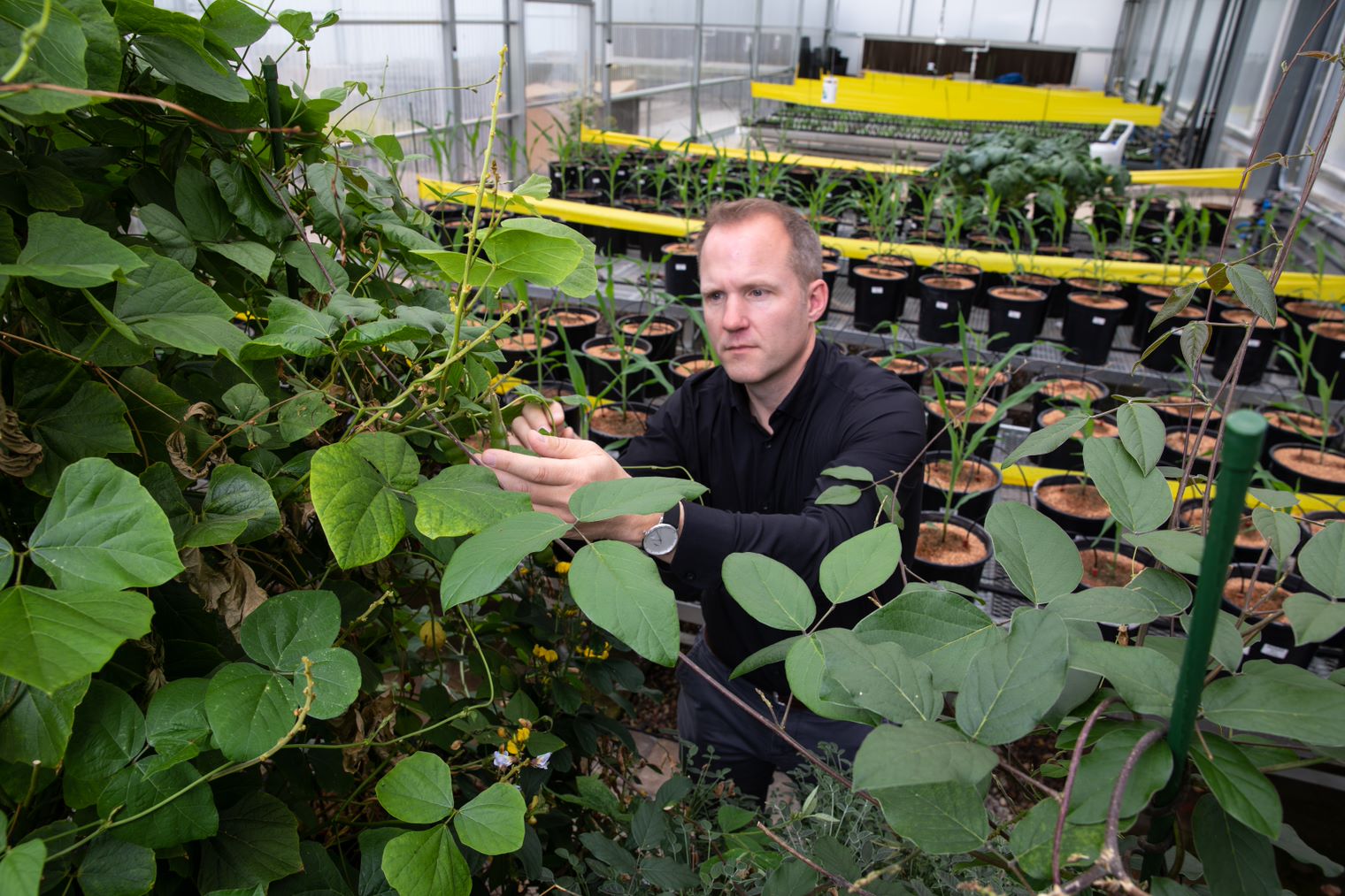Plants speed up their respiratory metabolism as temperatures rise, leading to a long-held concern that as climate warms the elevated carbon release from a ramped-up metabolism could flip global forests from a long-term carbon sink to a carbon source, further accelerating climate change.
However, a new University of Minnesota study with more than 1,000 young trees has found that plants also adjust – or acclimate – to a warmer climate and may release only one-fifth as much additional carbon dioxide than scientists previously believed. The study, published today in the journal Nature, is based on a five-year project, known as “B4Warmed,” that simulated the effects of climate change on 10 boreal and temperate tree species growing in an open-air setting in 48 plots in two forests in northern Minnesota. Scientists measured how much carbon dioxide the artificially warmed plants respired – released into the air via their leaves – and learned that over time, the trees acclimated to warmer temperatures and increased their carbon emissions less than expected.
Researchers increased temperatures at the test plots by 3.4 degrees C, an increase that might happen by the end of the 21st century, and learned that plants grown and measured at those higher temperatures increased their leaf respiration by an average 5 percent, compared to plants in ambient temperatures. Had the juvenile plants not been acclimated to the higher temperatures, their respiration would have increased by 23 percent over the plants in ambient temperatures.
The findings are important to climate change research because prior research with tiny plants in laboratory settings had found that warming over a period of weeks accelerated plants’ release of carbon much more than the Minnesota team found in the more realistic long-term forest experiment, which measured change from 2009 through 2013 and considered both experimental and seasonal temperature variations.
“This work is important because most global C cycle models ignore this respiratory adjustment and project accelerated climate warming because of elevated respiratory CO2 release,” says Peter Reich, professor of forest resources at the University of Minnesota, who led the project and is the paper’s lead author. “Now, with better data we can make those models more realistic. ”
“Although these results are ‘good news’ in the sense that the underlying physiology of plants is not going to make the warming of the planet radically worse, the problem we have created in the first place with our greenhouse gas emissions from fossil fuel burning still exists,” he says. “So, we very much still need to cut our carbon emissions in the coming decades by enough to stop climate change.”
“B4Warmed” was funded primarily by the U.S. Department of Energy; the research team included scientists from the University of Minnesota, as well as institutions in China and Maryland.













